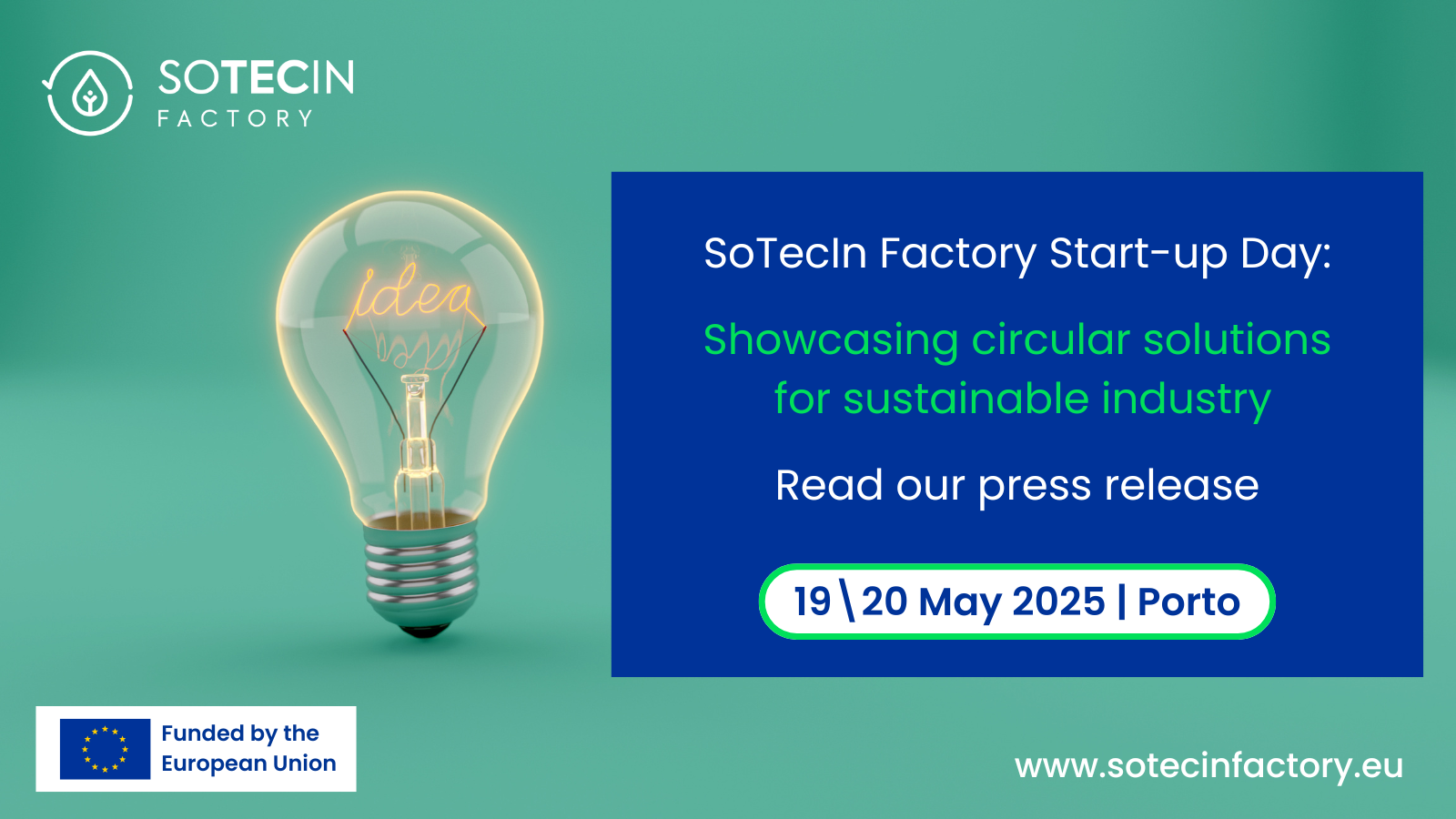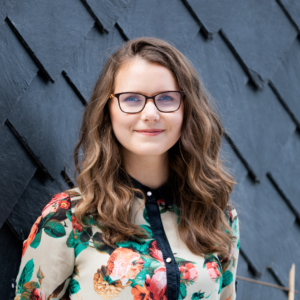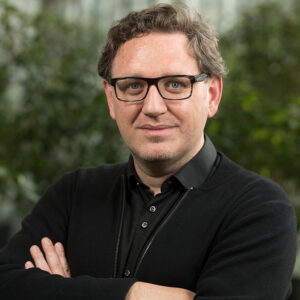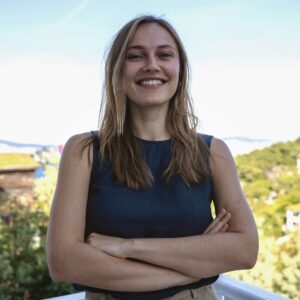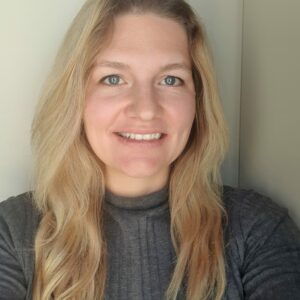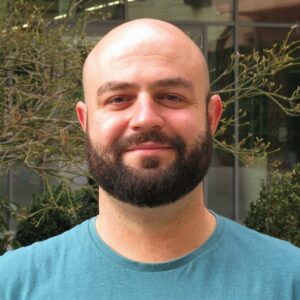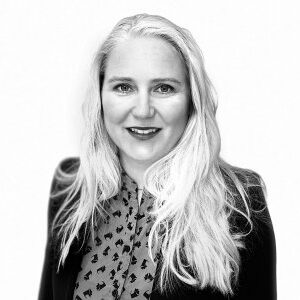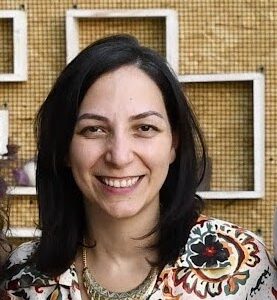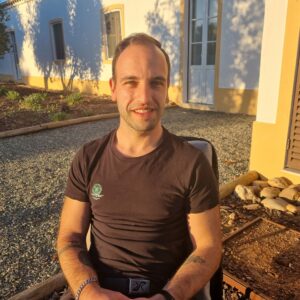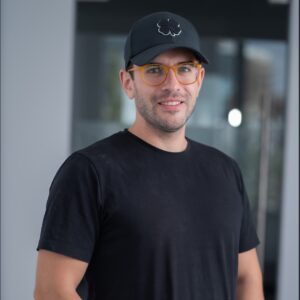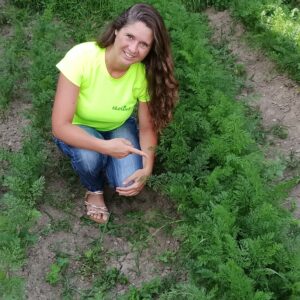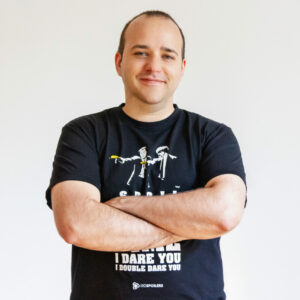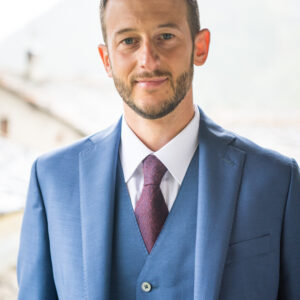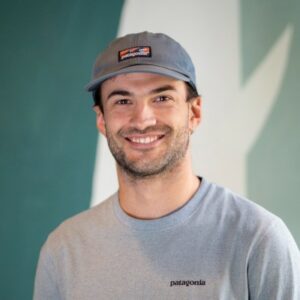
Cultivating Change: Kybernos Insights from SoTecIn Factory Phase 1
Find out more about Kybernos, their Phase 1 experience and mission for circular industry transformation, as one of SoTecIn Factory Open Call 1 Phase 2 winners receiving up to EUR 85K funding for the pre-market tech demonstration of their social innovation solution.
Can you briefly explain your solution and its key mission? What is your current business model?
We have initiated and are coordinating the Hinterland Systems data ecosystem, which will be co-founded and led by mission stewards to establish a unified boundary organization. This initiative aims to launch and jointly create the Hinterland Registry, a data-sharing service for the EU’s smallholders and other land users.
The primary goal of this data ecosystem is to provide collaborative decision support for the “3R Revolution” , one that is based on Regional, Regenerative, and Resource-efficient agriculture. Smallholders are key contributors of data, helping to drive Kybernos’ data intermediation efforts in collaboration with food policy innovators and regional food market makers, who serve as the primary data users.
As data entrepreneurs, our mission is to transform the food sector by breaking down and connecting its data silos and reducing information asymmetries. We are semantically describing and harmonizing data, ensuring its accessibility through consent management, and facilitating data-driven policies to accelerate transformation. In addition to our focus on data, our sector-induced mission is to support farmers, market makers, and consumers in advancing the 3R agricultural revolution by building a data ecosystem that validates producers’ claims.
We are developing a data intermediary business model, aiming to offer tailored and packaged data services for Regional food policy agencies (such as our challenge partner Lisboa E-Nova) and other territorial accountable agencies, and Market makers for regional agricultural products, including traditional farmers’ markets, restaurants, and regional online marketplaces.
What long-term, systemic change do you aim to achieve in the industry? How has the SoTecIn Factory program, particularly Metabolic’s workshop on building systemic impact strategy, influenced your approach to triggering that change?
We play an enabling role for bottom-up transformation activities of regional food systems through a data ecosystem, while also working with top-down stakeholders to institutionalize lasting change via data-driven policy measures. By innovating within a complexity framework, we actively pursue grassroots change, supported by data holders, and engage in strategic collaboration with our customers—data users such as policy innovators in net-zero cities, food market makers, and public sector bodies.
Our focus is on achieving long-term change through improved territorial evaluation, stronger policy enforcement, better collective decision-making among market actors, and ultimately, more efficient market functioning. We facilitate the documentation of vital resources, such as transitions “from depleted agricultural land to carbon-rich soils,” “from precarious labor conditions to fair working environments,” and “from fossil-fueled practices to regenerative approaches.” By highlighting and documenting alternative farming systems, we aim to strengthen their role in agricultural policies. Through the incorporation of the steward-led, mission-driven Hinterland Systems association, we are proud to adopt an approach that positions us as impact entrepreneurs, advocating for marginalized smallholders in the EU and their regional market makers.
In Phase 1, you joined workshops and mentoring to boost your capacity for systemic impact in the EU’s circular industry. What valuable skills, tools, or connections did you gain, and which parts were most helpful?
We have developed strong organizational skills and methodologies to apply systems thinking within our data ecosystems. This enables us, as both initiators and coordinators, to tackle complex and interconnected challenges from a holistic perspective, helping us identify key leverage points for impactful interventions.
A pivotal moment was the reflection process facilitated by Metabolic’s Impact Assessment Tool, used at the beginning of SoTecIn’s Phase 1 and just before finalizing our Demonstration Implementation Plan. This strategic reflection allowed us to refine our role as a data intermediary, clearly positioning us within the value chain. We identified three enabling roles that strategically fit with our mission during the 3R revolution: “Data Management and Insights,” “Policy Change,” and “Ecosystem Engagement.”
In your view, what support do social impact ventures with circular economy strategies need to be impactful and resilient? Has SoTecIn Factory Phase 1 provided any insights to improve your business sustainability?
Since 2022, we have been an active participant in Vienna’s Digital Humanism movement, which emphasizes that digital business is fundamentally about people, not technology. The evolving digital landscape calls for leadership that is centered around human values.
A key takeaway from Phase 1 has been recognizing the significant leverage we have in facilitating food sector policies across all governance levels, from EU-wide frameworks to local policies. Our venture’s solution is well-supported through federated governance, market design principles, and financial mechanisms, including EU’s Data Governance Act, the proposed EU’s Carbon Removal Certification (CRC) Framework, the Land Use, Land-Use Change and Forestry (LULUCF) Regulation 501, the Common Agricultural Policy (CAP), the EU Action Plan on Organic Production, the EU Deforestation Regulation (EUDR) and the Green Claims Directive. We have conducted a thorough analysis of these policy streams across all governance levels (regional, national, and EU). The Hinterland Systems data ecosystem can streamline sustainability analysis and reduce bureaucracy through standardized and harmonized data management.
In Phase 1 of SoTecIn Factory, you co-developed your solution with a Market Validator, an industry actor and potential customer. How did this refine your solution and enhance your understanding of sustainable industry challenges? How will it prepare you for building and testing your Phase 2 demonstrator?
As previously mentioned, we are well-positioned to support regional sustainability analysis policies with flexibility. During SoTecIn Phase I, our focus was on designing and structuring service packages tailored to purpose-driven data users. We used the specific requirements of our challenge partner, Lisboa E-Nova, as a model for other regional food policy innovators.
We have generalized these requirements to support the City of Lisbon’s regional sustainability plan, using it as a foundation for building and testing our demonstrator in multiple regional settings in Phase 2. Our goal is to market these data ecosystem service packages through institutionalized innovation procurement in Austrian cities and expand into the regional farmers’ markets of other EU member states.
What inspired you to adopt social initiatives in your business? Was there a specific moment or experience that sparked this decision?
We will co-found the Hinterland Systems association as a strategic social initiative, recognizing its potential to play a critical role in addressing societal and environmental challenges. This is especially important in the context of the food sector, which is known for its negative externalities, such as environmental degradation, emissions’ intensity, and the crossing of key planetary boundaries.
At Kybernos, our drive to create a positive societal impact fuels our commitment to integrating social dimensions into our initiatives. The Hinterland Systems association represents the first formal expression of Kybernos’ strategic ambitions. For us, purpose-driven leadership means aligning profit with purpose, seeing them as complementary rather than conflicting.
How do you stay focused on your mission for a sustainable industry, and how has the SoTecIn Factory program supported you? Additionally, what were your key takeaways from the Phase 1 Steward Ownership workshop, and why is it an important governance approach for mission-driven businesses, even if you haven’t adopted it?
We are strategically adopting the governance approach presented by Metabolic during the Steward Ownership workshop. Prior to this, we had already planned to establish a boundary organization for our data ecosystem, a concept well-known in cluster management. This governance model will be applied to coordinate common objectives and data-sharing purposes for food streams’ stakeholders. The insights gained from the workshop allowed us to reach a consensus within Kybernos to pursue this kind of institutional innovation. This led to the formation and co-founding of a steward-led, mission-driven governance framework for our data ecosystem, Hinterland Systems, and the incorporation of the Hinterland Systems association as a so-called “side foundation” structure of Kybernos.
The association, technically supported by Kybernos, will launch and operate the Hinterland Registry, which will function as a “Resource” and “Utility” to facilitate data sharing for smallholders and peasants. Our goal is to significantly reduce barriers for these actors to share and receive data.
Balancing your mission with personal well-being can be challenging for social entrepreneurs. What’s your secret ingredient to achieving this balance? Are there any tips, tricks, or tools from the SoTecIn Factory Program—whether from webinars, mentorship, or informal chats—that you’d share with other innovators?
We enjoy collaborating daily with extended consortia and like-minded impact entrepreneurs to build a robust and expansive data ecosystem. A shared motivation among us, and many conscious individuals, is the exploration of growing regional and seasonal food options. Documenting and promoting these choices is an easily relatable concept that helps us connect with a wider, supportive community. Finding such a shared purpose is valuable for addressing the challenges of being a social entrepreneur.
We also actively promote our vision of Digital Humanism, a vision embraced by the City of Vienna, our inner circle, and an increasing number of partners within the Hinterland Systems consortia.
For the end, what are your expectations of Phase 2 of the SoTecIn Factory programme? What are your general goals for the next 6-12 months?
Building on our success within the SoTecIn Factory, we have set higher ambitions for the next 12 months. One of our key scaling strategies is expanding the Hinterland Registry by motivating more actors to register and share their data. This motivation can be amplified by re-using and co-developing relevant data models for sustainable agricultural practices, such as regenerative agriculture, agroforestry, and carbon farming. In addition to scaling our account and consent management system, we utilize vocabularies and domain-specific standards to drive growth.
Our main objectives are to: Improve data literacy among farmers, restaurants and farmers’ markets; Reuse existing data models together with established regenerative agriculture communities and Engage knowledge workers and smallholders to collaborate on the initial use cases within our data ecosystem.
Our work with knowledge workers on harmonising sustainability attributes in food streams will influence their mindsets, behaviors, and data-related skills. For Phase 2, we plan to open our product development process and collaborate with interested SoTecIn’s Region of South-West mission council members to collaboratively advance the 3R principles.

